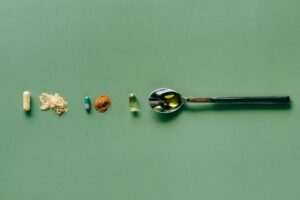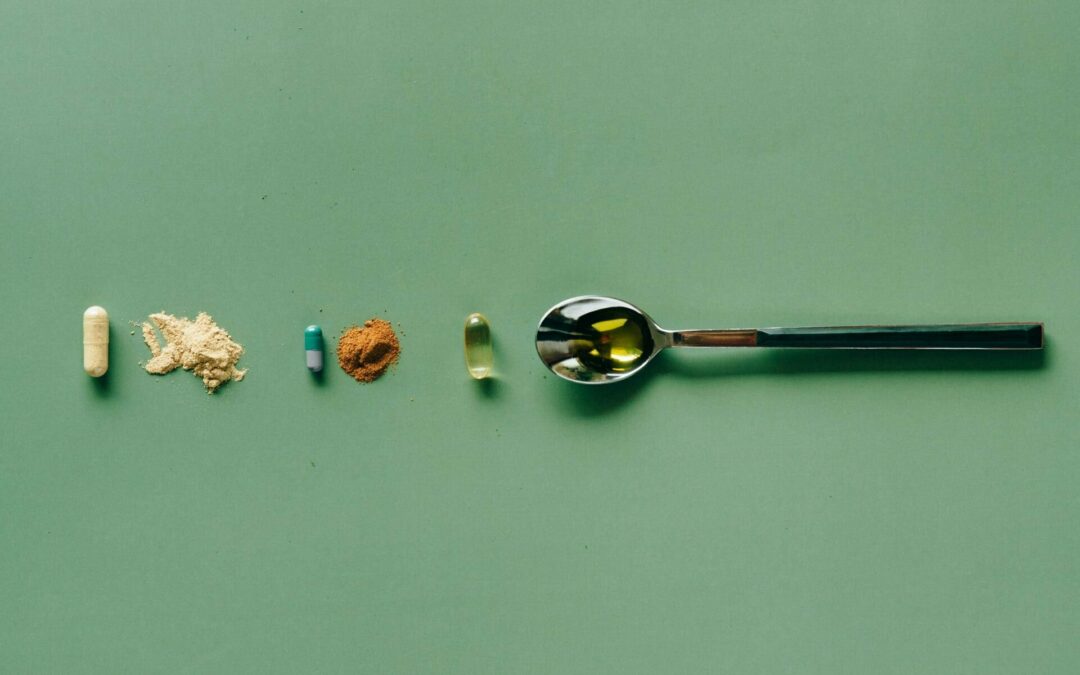
There are a variety of different supplements that have been developed and produced to help you get the most out of your performance. We have detailed an example of a few below.
Please contact us of you have any questions about any of the information detailed below.
Creatine
Creatine is a small tripeptide, which means it is made up of 3 amino acids linked together.
Our bodies produce it naturally and it is found naturally in foods.
How it works
ATP – The main energy currency used in the body.
The body has 3 energy systems
Aerobic – produces ATP slowly. Uses blood glucose and fat as fuel for long duration workouts, like long distance running.
Anaerobic – produces ATP quicker. Uses blood glucose for intense bouts lasting 30s-120s, like 400m running or 50m swimming.
Phosphagen – produces ATP extremely quickly, it uses creatine phosphate stored in muscle as fuel, bouts last less than 10 seconds like 60-80 sprints, or heavy lifts in the gym.
An International Society of Sports Nutrition Paper stated, a normal diet containing 1-2g of creatine per day will have creatine stores at only 60-80% of saturation levels. While supplementation of creatine will boost creatine stores by 20-40%. Meaning saturation is best achieved through supplementation.
Dosage
The fastest way to achieve saturation is through Creatine loading, followed by a maintenance phase. For example, taking 20-25g per day for one week, then you will have reached saturation levels and you should start to see the benefits straight away. After the loading period, 5g per day will be enough to maintain saturation levels.
Or, you can start with the 5g maintenance dose without any loading, but it may take up to a month to reach saturation levels and to see the same results.
When you take Creatine during the day for optimum benefits is still up for debate. Either Pre/post workout or anytime during the day, there isn’t anything to suggest that there are major benefits to any of these over the other.
Benefits
Creatine supplementation can improve overall maximum strength and power by 5-15%.
Even experienced trainers with over 5 years of training can see an improvement by 30% more reps achieved across 5 sets with a moderate weight taken to failure.
Considering the strong link between training volume and hypertrophy, being able to perform more work, should translate to more muscle over time.
Creatine does cause intramuscular water retention. This is nothing to worry about as the water is in the muscle as opposed to under the skin or anywhere else.
Non-responders –
Not everyone will benefit from Creatine, extremely experienced trainers, very active people or simply someone not training hard enough may result in non-response. Taking Creatine and not training hard will not result in performance improvement.
Cycling
There is no need to cycle Creatine as the body will not build a tolerance to it like it would caffeine.
Beta-Alanine
What is it? – Beta-Alanine is a part of a molecule called carnosine which is found in the muscle, more specifically in your fast twitch muscle fibers. It is an intracellular buffer of hydrogen ions (slows the build-up of lactic acid)
Benefits
- Increased force production later in high intensity sessions
- Delays fatigue
Side effects
- Paraesthesia (skin tingling sensation)
Dosage
- Loading: 4-10 weeks of 80mg/kg/day
- Maintenance: 40mg/kg/day
- Single doses of 10-20mg/kg
Sodium Bicarbonate
What is it? – Sodium Bicarbonate (bicarbonate of soda) works in a similar way to Beta-Alanine in that it slows the build-up of lactic acid. It does this by increasing blood PH making it more alkaline.
Benefits
- Improved Anaerobic Performance
- Improved Aerobic Performance
- Possible it increases power output too
Side effects
- Can cause an upset stomach, taken alongside carbohydrates seems to mitigate this.
Dosage
- 300mg/kg bodyweight. Less can be taken (200mg/kg) if this is too much and causes stomach upset.
- Timing: 60-90 mins prior to training
Caffeine
What is it? – Caffeine is a naturally occurring stimulant and can be found in gum, tablets and various drinks such as pre-workout, teas and coffee. For supplementation, Tea and coffee are less consistent in their caffeine content so for reliability and consistency other forms are preferred.
Benefits
- Improved Anaerobic Performance
- Increased muscular endurance.
- Increases strength/force output.
- Increases reaction time and concentration.
Side effects
- It is a mild diuretic.
- Can negatively effect sleep
Dosage
- 2-6mg/kg bodyweight.
- Timing: 30-90 mins prior to training

